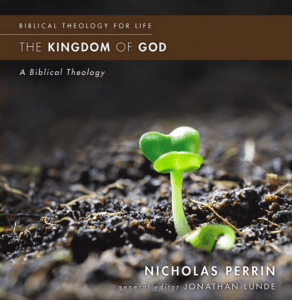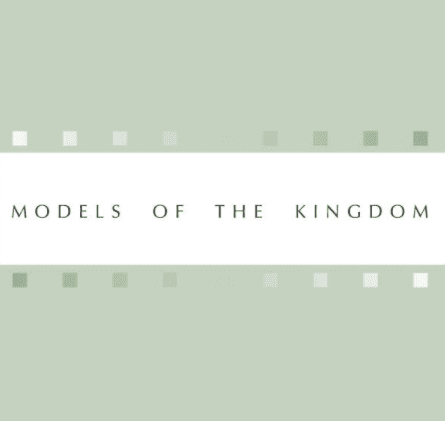 Tom Wright doesn’t back down from this claim: those who read the Gospels by way of the Creed will miss what the Gospels are saying. He doesn’t back down then from this second claim: if we read the Creed by way of the Gospels — understood in context — we will read the Creeds as we ought. (After the jump I have The Apostles’ Creed.) I agree with both of Tom’s claims; but I have some reservations (see below).
Tom Wright doesn’t back down from this claim: those who read the Gospels by way of the Creed will miss what the Gospels are saying. He doesn’t back down then from this second claim: if we read the Creed by way of the Gospels — understood in context — we will read the Creeds as we ought. (After the jump I have The Apostles’ Creed.) I agree with both of Tom’s claims; but I have some reservations (see below).
Do you agree with N.T. Wright on seeing the Creed as leaving out kingdom and life of Jesus? Do you think the Creed therefore distorts the New Testament/biblical narrative? What is the relationship of Creed to Canon? Do you think the problem is Creed or soteriology?
1. Tom Wright’s aim in his scholarly career, and in this new book How God Became King, is to get into the inner and developing fabric of the Story of Israel and the Story of Jesus in order to find out what makes it tick and work the way it does — shedding light on what we’ve got, not getting back to some pristine, earlier, uninterpreted Jesus or Israel. In this, Tom’s historical Jesus works differs from many. Yet, Wright’s approach is every bit that of the historian.
2. Wright knows that some today want to avoid historical scholarship, in part because some just tear the thing apart and never put it back together again. But others are more robust in saying “the Creed is what the Church believes, I will read the Bible through the Creed.” Wright contends the Creed doesn’t let the Bible do what it does naturally. The Creed is an outline of the faith, not a comprehensive confession. If you agree with that statement, everything changes when it comes to reciting the Creed.
3. The Creed omits the whole Israel Story and Kingdom Story of the Bible. Creed and Canon are not the same: “But if their enthusiasts claim that they teach exactly the same thing as the canon, they have deceived themselves, and the truth is not in them” (257). [This does leave out some historical nuances, I have to admit: just what is the relationship of the Creed to Canon? It is not that we had Canon and then we got Creed, but that Creed and Canon were mutually developing alongside one another.]
4. The Tradition and Scripture are not the same, and Scripture is not the early part of the Tradition. For Wright, who is a good Protestant and not just a historian, first Scripture and everything must answer to Scripture. There’s more to Wright than that: for him, the categories we use to understand Jesus and the gospel must derive from the Bible and be biblical and historical and not simply theological or creedal.
5. There are two ways to read the Creed, one without awareness of the biblical Story — Israel, God becoming King through the cross and resurrection of Jesus — and one with that awareness. [I am convinced many in the church have done and do read the Creed through the Bible’s Story, but there is no question that far too many read the Creed with little awareness of the Bible’s Story. The big point, which I will make below, is that they have learned to read the Creed through a soteriology.]
6. I’d like to contend that the problem Tom Wright is addressing in this book is not simply Creed. Yes, I agree; Creed does create some problems for non-Bible readers. But the issue is more that the Creed is not needed because what the Bible teaches is a soteriology, a personal soteriology or an ecclesial soteriology or a theological soteriology, and once one has that soteriology worked out — I see this in Matt Chandler’s book The Explicit Gospel and I see this in the Reformed “covenant soterians” and I see this in Catholic soteriological theology and I see it in Eastern Orthodox soteriological approaches and I see it in four spiritual laws revivalists gospel approaches — and these make Creed of some value but what is of value is already established.
7. In other words, the Creed problem for not reading the Gospels aright is already a “gospel problem” that means neither Israel’s Story nor the Creed are really necessary. All we need is a good soteriology.
8. Tom Wright’s reading of The Apostles’ Creed in light of the Bible’s story, found on pp. 264-273, is a good place for someone to begin forming a good solid class on Christian Theology.
I believe in God, the Father almighty,
creator of heaven and earth.
I believe in Jesus Christ, God’s only Son, our Lord,
who was conceived by the Holy Spirit,
born of the Virgin Mary,
suffered under Pontius Pilate,
was crucified, died, and was buried;
he descended to the dead.
On the third day he rose again;
he ascended into heaven,
he is seated at the right hand of the Father,
and he will come again to judge the living and the dead.
I believe in the Holy Spirit,
the holy catholic church,
the communion of saints,
the forgiveness of sins,
the resurrection of the body,
and the life everlasting. AMEN.











